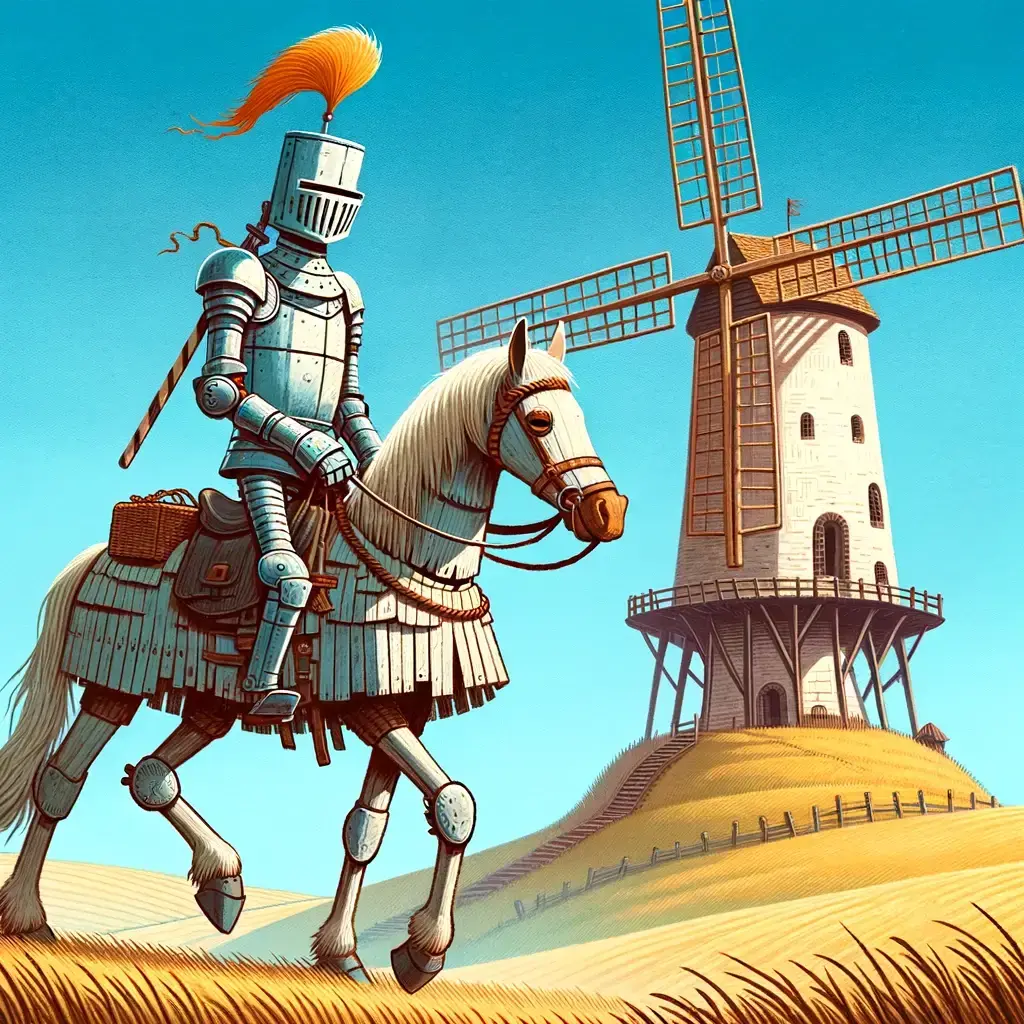- cross-posted to:
- technology@lemmy.world
- cross-posted to:
- technology@lemmy.world
Like many researchers, Gerlich believes that, used in the right way, AI can make us cleverer and more creative – but the way most people use it produces bland, unimaginative, factually questionable work. One concern is the so-called “anchoring effect”. If you post a question to generative AI, the answer it gives you sets your brain on a certain mental path and makes you less likely to consider alternative approaches. “I always use the example: imagine a candle. Now, AI can help you improve the candle. It will be the brightest ever, burn the longest, be very cheap and amazing looking, but it will never develop to the lightbulb,” he says.
To get from the candle to a lightbulb you need a human who is good at critical thinking, someone who might take a chaotic, unstructured, unpredictable approach to problem solving. When, as has happened in many workplaces, companies roll out tools such as the chatbot Copilot without offering decent AI training, they risk producing teams of passable candle-makers in a world that demands high-efficiency lightbulbs.
There is also the bigger issue that adults who use AI as a shortcut have at least benefited from going through the education system in the years before it was possible to get a computer to write your homework for you. One recent British survey found that 92% of university students use AI, and about 20% have used AI to write all or part of an assignment for them.
Under these circumstances, how much are they learning? Are schools and universities still equipped to produce creative, original thinkers who will build better, more intelligent societies – or is the education system going to churn out mindless, gullible, AI essay-writing drones?
I feel more like we’re in a golden age where people can express their stupidity with a larger microphone they were ever given before.
And as much as people complain about the stupidity of people, the population is probably the most literate and productive in human history. We’re just seeing people use a new tool poorly when that use would not have been recorded previously.
The most literate? What are the stats these days?
-
On average, 79% of U.S. adults nationwide are literate in 2024.
-
21% of adults in the US are illiterate in 2024.
-
54% of adults have a literacy below a 6th-grade level (20% are below 5th-grade level).
This from the
 … yes, the National Literacy Institute isn’t aware that the “I” in “NLI” already means “Institute.” PIN numbers aside, let’s look at just those three figures.
… yes, the National Literacy Institute isn’t aware that the “I” in “NLI” already means “Institute.” PIN numbers aside, let’s look at just those three figures.More than a fifth of the population being illiterate isn’t a promising start, but add the 54% below sixth-grade comprehension, and 75% can’t understand materials that are supposed to be mastered at 11 or 12 depending what time of the year you were born.
Given that only 79% are literate, and there’s no reference to subsets here, it’s understood that N is the same for all three statistics. That leaves 25% of adults at or above the sixth-grade level.
If one-quarter if the population being literate above the elementary level is a high-water mark historically, it’s a wonder we got as far as we did in science and technology and literally every form of progress over the decades.
It might feel good to think things are the best they’re ever been; the data don’t bear that out.
(Also, if you run a literacy org, maybe at least run your copy by an editor to avoid redundant embarrassments such as “U.S. adults nationwide.”)
I described a shift over time and your rebuttal was arguing over a single point in time.
https://en.wikipedia.org/wiki/Literacy_in_the_United_States
It’s gone down a ways. It’s kinda bad.
You’re right, it has gotten worse. Thanks for providing the appropriate evidence.
You’re welcome. Here’s the Wikipedia donation page. They did the work, I just googled.
Yeah, but you also put together an argument that addressed the key issue.
Aww shucks. Thanks!
Show me the historical data saying “functional” adult literacy (as defined by at least sixth grade) has never been higher than 25% in the U.S., and I’ll reconsider. Absent that, you’re just upset your unfounded belief got challenged with facts, and I’m not going off on a longitudinal excursion for you.
-
I feel like this shit is cyclical. Like, we’ve been here before and we’ll be here again.
The question is: are we ever going to evolve past this nonsense before we go extinct. Historically speaking, the answer has always been “probably not”
We’re just getting closer and closer to the end so it’s more frightening now, I feel.
With any other species, surviving longer didn’t mean more ways to destroy their own future. Man is special, but that’s not always a good thing. They basically had to worry about weather in a stable climate and asteroids.
Seems like thinking modern times are the dumbest humans have ever been is just the inverse of the idealized fantasy of a past that never was that fuels conservativism and fascism at their cores.
deleted by creator



